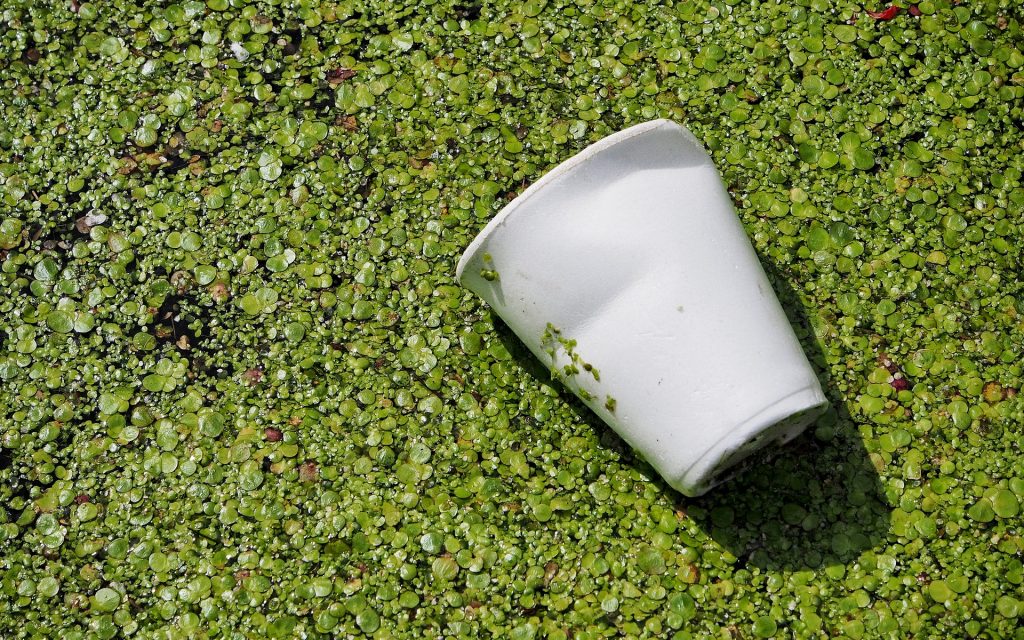 Economy
Economy 
We look at whether a packaging tax could reduce litter and other environmental harm in the sixth of our blog posts considering new devolved taxes for Wales.
We all know it, that foamy plastic packaging you get with take-away coffees and guilty late-night kebabs. Ubiquitous at non-chain takeaways, hardly a second’s thought is given to the polystyrene trays and cups our orders are served up in.
But polystyrene comes with a huge environmental cost. It’s common source of litter, most parts of Wales do not offer recycling facilities for it, and its prevalence in marine debris is widely documented. Depressingly, it has been found to have been ingested by turtles, fish, seabirds, and other mammals and invertebrates who mistake the small fragments it breaks down to as food.
The thousands of retailers in Wales who save money by opting to use this cheap packaging do not bear any of the cost and currently have no incentive to change, so could a tax make them rethink their reliance on polystyrene packaging?
What would a tax do?
A tax would seek to reduce the use of polystyrene packaging in takeaway food outlets, while raising awareness of its environmental impact and providing a boost to the market for more environmentally-friendly forms of packaging. The tax seeks to make takeaway food retailers more responsible for the environmental impact of their business
Other, more environmentally friendly forms of packaging are readily available, but there is currently no pressure on retailers to opt for this more expensive packaging option. For example, an online wholesaler offers 500 large polystyrene burger boxes for £21.12, whereas the biodegradable burger boxes are sold at £44.48 for 500. There is a clear financial disincentive to purchase biodegradable packaging for many takeaway food outlets, which this tax will seek to remove.
What would the tax look like?
Akin to the carrier bag charge, the tax would result in an additional £0.05 charge per piece of polystyrene packaging used. Retailers can either choose to pay this themselves, or pass on the cost to the customer.
The tax would be collected centrally (either at the local authority level or on a Wales-wide basis) and ring-fenced to be spent on improving Wales’ environment or ‘green’ packaging innovation. Issues with compliance are likely, as has already been experienced with the non-compliance rate for the carrier bag charge, so a requirement for all businesses which sell takeaway food and drink in polystyrene packaging may be advisable.
What’s being done elsewhere do reduce it?
Several US cities and states have explored the idea of banning the use of polystyrene takeaway packaging, although this has often been met with strong opposition from the food and packaging industries. For example, a ban was introduced in New York City on possessing, selling or offering single-use polystyrene products in July 2015, allowing for a six-month transition period. This ban was overturned by the city’s Supreme Court, which ruled that it could be recycled and therefore the justification for the ban was unfounded. Oxford City Council faced a similar challenge when they also tried to introduce a ban on non-recyclable takeaway food packaging, when the industry challenged their claim that polystyrene packaging could not be recycled.
These cities opted to ban rather than tax polystyrene takeaway packaging, although packaging taxes have been introduced elsewhere. Packaging taxes have been particularly popular in Scandinavian countries, where they have existed in some form in Sweden, Denmark and Finland, and often complement existing bottle deposits schemes.
For example, Finland introduced a tax on soft and alcoholic drink containers in 1993. The tax is applied at the point the producer or importer sells on the product (either to a retailer or directly to the consumer) at €0.51 per litre held by the container and it is reduced and not applicable to recyclable and refillable containers respectively.
Another UK first
Placing an additional charge on packaging is an effective way to reduce its consumption and encourage retailers and the public to seek out ‘greener’ alternatives. A tax on polystyrene takeaway food packaging is not going to raise billions of pounds, but it raises awareness about a significant environmental harm and is another example of how Wales can set an example to the rest of the UK on how the government can work with retailers and consumers to influence businesses’ behaviour for the better.
Nisreen Mansour is policy & research officer at the Bevan Foundation.
Each week, we are profiling our interim recommendations for new devolved taxes for Wales. To learn more about our work on devolved taxation, please click here.


